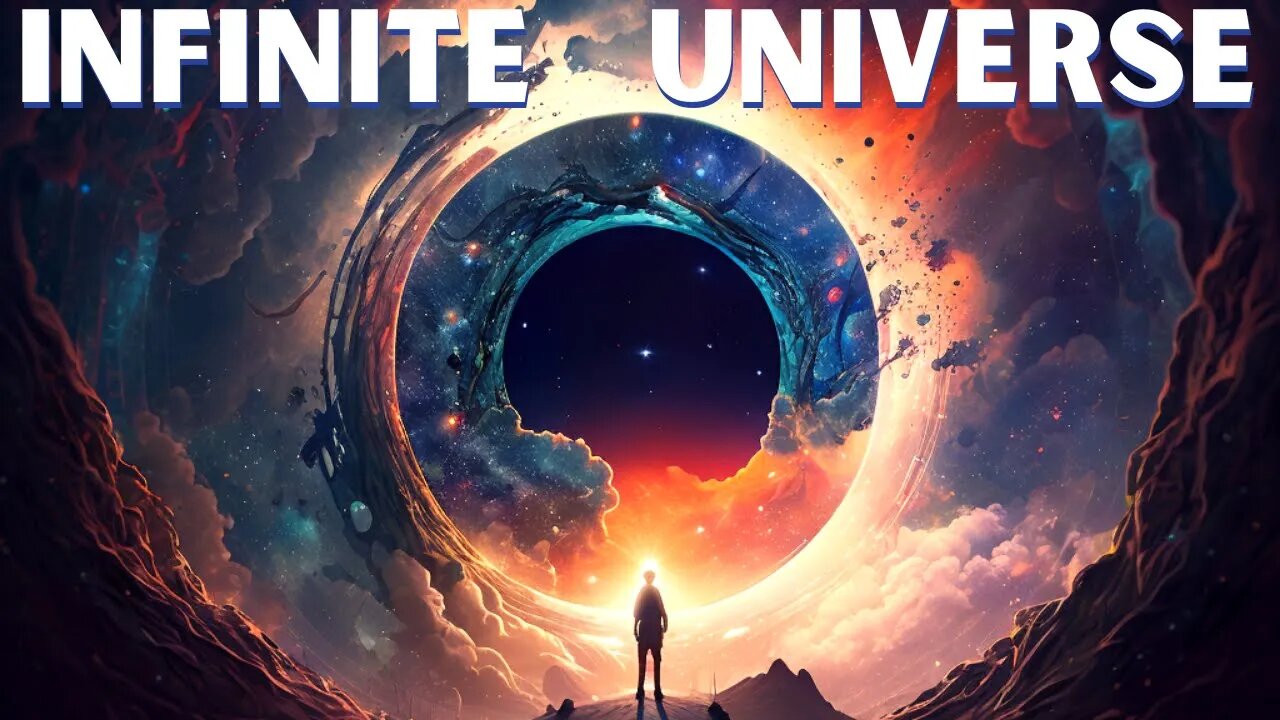Premium Only Content

What if the universe were infinite?
What if the universe were infinite? Let's take a journey into the depths of our imaginations and contemplate the possibilities of an infinite universe. We'll explore different theories, ask hard questions, and share some of the most fascinating facts about the universe. Join us for this captivating exploration that will have your viewers begging for more!
Subscribe to Daily Dose Of Fact - https://bit.ly/2Z4b0m0
The concept of an infinite universe has intrigued scientists, philosophers, and theologians for centuries. If the universe were truly infinite, it would have far-reaching implications for our understanding of space, time, and matter.
Firstly, if the universe were infinite, then the amount of matter and energy within it would also be infinite. This would mean that the laws of physics would apply in every part of the universe, with no variation or exceptions. This would also mean that there would be an infinite number of stars, planets, and other celestial bodies in the universe.
Secondly, the concept of infinity also suggests that there would be an infinite number of potential variations and possibilities within the universe. This means that there would be an infinite number of civilizations, each with their own unique histories, cultures, and perspectives. It is even possible that there could be other versions of ourselves existing in other parts of the universe.
However, the idea of an infinite universe also raises several challenges and paradoxes. For example, if the universe were infinite, then it would have no center or edge. This means that every point in the universe would be equidistant from every other point, which seems paradoxical. Additionally, if the universe were truly infinite, then the night sky should be infinitely bright, as every possible configuration of stars and galaxies would be present in the sky. This phenomenon is known as Olbers' paradox, which suggests that either the universe is not infinite or that there are some other factors at play that prevent the night sky from being infinitely bright.
Moreover, the idea of an infinite universe also raises questions about the nature of time. If the universe were infinite, then there would be no beginning or end to time. This means that the universe would have always existed and would continue to exist indefinitely, which contradicts the notion of a finite, measurable time that we are accustomed to.
The idea of infinity also has implications for the concept of randomness. If the universe were infinite, then every possible configuration of matter and energy would be present somewhere in the universe. This means that every possible event, including every random occurrence, would be predetermined by the infinite nature of the universe.
Another interesting implication of an infinite universe is the potential for the existence of other forms of life. If the universe is infinite, it follows that there would be an infinite number of planets and solar systems, and therefore an infinite number of opportunities for life to evolve elsewhere.
This raises the question of whether life is unique to Earth, or whether it exists in other parts of the universe. If the universe is truly infinite, then the probability of other forms of life existing elsewhere becomes very high. However, the vast distances between celestial bodies would make it very difficult to detect and communicate with any potential extra-terrestrial life.
Additionally, an infinite universe would have significant implications for the nature of reality itself. If the universe is infinite, then it would contain every possible configuration of matter and energy, meaning that there would be an infinite number of parallel universes existing alongside our own.
This concept of a multiverse is popular in science fiction, but it is also a possibility in theoretical physics. In fact, some theories suggest that the universe may be just one of many parallel universes that exist simultaneously.
The idea of an infinite universe also challenges our understanding of space and the nature of distance. If the universe is truly infinite, then it follows that there is no such thing as "far away" or "close by" in the grand scheme of things. Every point in the universe is equally distant from every other point, and there are no limits to how far we can travel.
Finally, the concept of an infinite universe raises questions about the ultimate fate of the universe itself. If the universe is infinite, then it follows that it will never end. Instead, it will continue to exist indefinitely, with no beginning or end to time.
-
 1:18:29
1:18:29
Flyover Conservatives
1 day agoThe Dollar Devaluation Playbook: Gold, Bitcoin… and the “Genius Act” - Andy Schectman | FOC Show
48.8K4 -
 7:10:35
7:10:35
SpartakusLIVE
10 hours agoWZ Tonight || Battlefield 6 BATTLE ROYALE Tomorrow!
51.4K -
 3:25:11
3:25:11
megimu32
8 hours agoON THE SUBJECT: Halloween Nostalgia! LET’S GET SPOOKY! 👻
38K1 -
 1:24:56
1:24:56
Glenn Greenwald
10 hours agoThe Unhinged Reactions to Zohran's Rise; Dems Struggle to Find a Personality; DHS, on Laura Loomer's Orders, Arrests UK Journalist and Israel Critic | SYSTEM UPDATE #538
127K102 -
 4:36:02
4:36:02
Spartan
9 hours agoBack from worlds. Need a short break from Halo, so single player games for now
27.2K -
 LIVE
LIVE
Eternal_Spartan
17 hours ago🟢 Eternal Spartan Plays FF7 Rebirth Episode 15 | USMC Veteran
61 watching -
 1:32:11
1:32:11
Tundra Tactical
9 hours ago $2.26 earnedProfessional Gun Nerd Plays Battlefield 6
20.9K1 -
 1:00:08
1:00:08
BonginoReport
11 hours agoDark Brandon Returns - Nightly Scroll w/ Hayley Caronia (Ep.164)
123K81 -
 49:24
49:24
Donald Trump Jr.
12 hours agoPeter Navarro Went to Prison So You Won't Have to | TRIGGERED Ep,286
64.6K43 -
 2:33:49
2:33:49
Nerdrotic
20 hours ago $4.57 earnedNerdrotic at Night 528
26.2K9